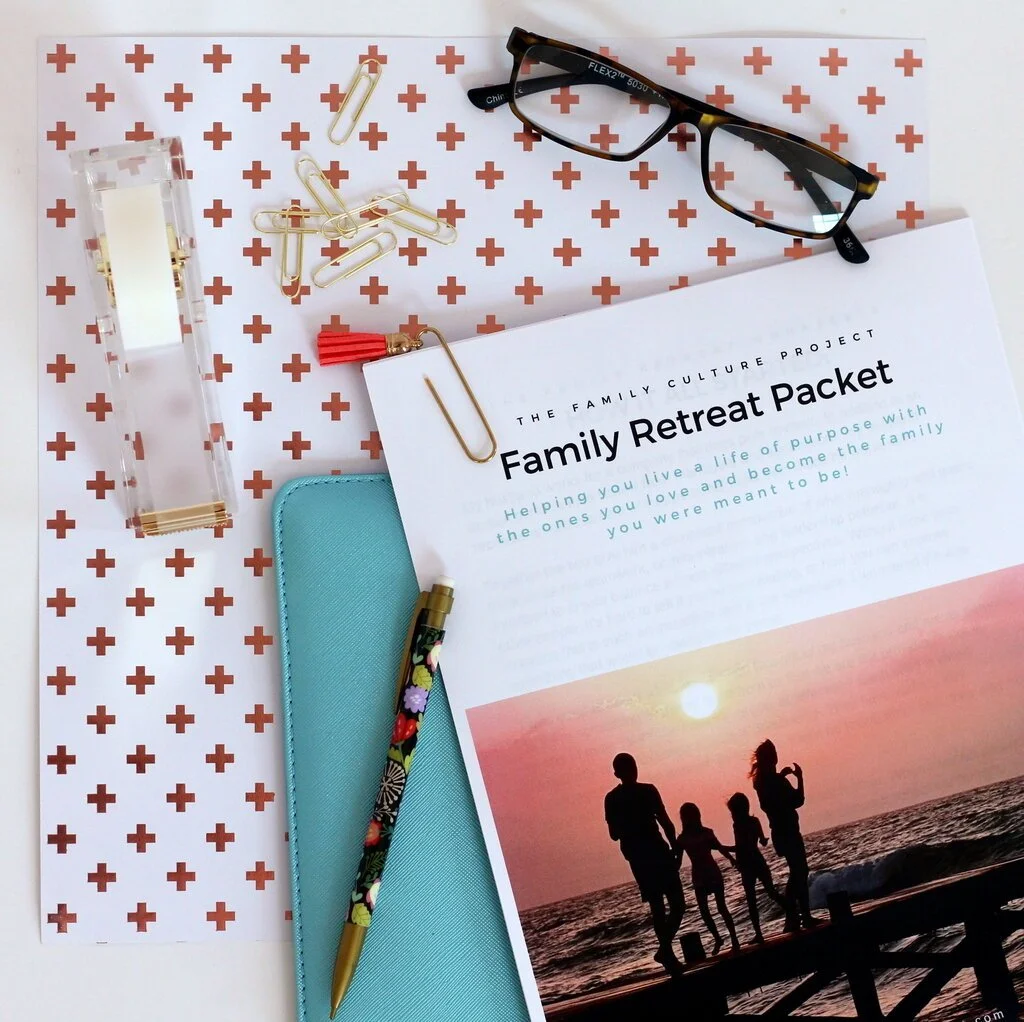How to Receive Feedback in a Way That Strengthens Your Family
Giving and receiving feedback is key to the growth and health of any culture, including your family's. However, we often avoid it because it's not always easy to do. It requires humility, plus I believe it is a skill that takes some practice.
I've talked before about our family's annual 360 peer review here and here. The questions we ask are similar to those that organizations ask as a part of their employee reviews. It allows us to reflect on how we were doing personally and as a family. Our conversations aren't always easy, but the feedback we get is priceless.
Honestly, I don't always want to hear what people have to say about me; however, without honest and timely feedback, our personal and family growth is limited. When done correctly, giving and receiving feedback will not harm your family but strengthen it.
We know from experience that giving and receiving feedback isn't always easy.
For many of us, when we receive feedback, or what we believe to be criticism, our brain tries to protect us from what it perceives as a threat. When that happens, it can be uncomfortable. We may get defensive, we may dismiss it, or outright refuse to believe it.
When we react this way, the people in our family don't feel heard or valued. However, if you welcome feedback and know how to receive it, we can use it to create a culture that fosters the growth of individuals and the family as a whole.
We need feedback from others because, without it, it's hard to tell if you're succeeding or how you can improve.
Plus, receiving and acting on feedback eliminates our blind spots. Whether we'd like to admit it or not, we all have them.
The first time we asked our kids for feedback, we expected most of what we heard. For example, everyone agreed we wanted to bicker less and be on time. Our kids shocked us when they said, "Push me to learn and manage my time better." "Be more strict [to help me meet my goals]." and "Tell me to practice more." Yikes! I thought I was helping them by taking it easy in these areas, but they needed support I wasn't giving.
Because when we were open to hearing what our kids had to say, we were able to put together a plan to make positive changes, ones that would benefit everyone.
If you receive feedback that is less than glowing, it does not mean you are a terrible parent. So don't let the fear of this stop you from hearing what others have to say.
The most successful leaders receive input from others so they can improve. I believe that as parents, we should be doing the same.
Andy Stanley says, "Leaders that don't listen to others will eventually be surrounded by people that have nothing to say." The last things we want is for our kids to clam up and not talk to us about how we can love and serve them better.
Here are a few things that will help you receive feedback in a way that strengthens your family.
Change what you think about it. Receiving feedback is not a negative thing. It provides an opportunity to grow and improve. When you change the way you think about it, you will change the way you feel about it. You will no longer dread it, but crave it and eventually embrace it.
Separate the do from the who. The feedback you receive is about what you do, not who you are. When you take it as a personal attack, it's hard to learn from it.
Ask clarifying questions. General questions in response to feedback rarely lead to growth. Consider asking, "What's one thing I could improve in this area?" Avoid asking questions that are likely to result in "yes" or "no" answers. Ask questions that begin with 'how' or 'what'. Often, the best and most straightforward response is, "Tell me more."
Invite feedback often. The best way to get comfortable with getting feedback from others is to ask for it regularly and when you get it listen well. Don't wait until things go terribly wrong before you are open to what others have to say. Make it an ongoing practice.
Feedback is excellent not just on the back end of a project, vacation, or change in circumstances, but on the front end as well.
Also, take notice of the areas you get defensive or push back on. These areas may be precisely where you need the feedback the most.
Without honest and timely feedback, your personal and family growth is limited.
If you would like to improve in the area of receiving feedback, ask yourself:
"On a scale of 1-10, how strong am I at receiving feedback?
Then commit to improving that. Also, ask one person you trust, "If you had to make one suggestion for improvement, what would they be?"
Are you interested in hosting your own retreat?
We’ve taken the guesswork out planning yours by creating the Family Retreat Packet. It’s guaranteed to save you time!
Our Family Retreat Packet includes sample itinerary, packing list, activity suggestions, discussion worksheets and much more!
Prefer listening to reading?
Check out this episode of The Family Culture Project podcast >> How Receiving Feedback will Strengthen Your Family
Be sure to subscribe to the show in iTunes or your favorite podcast app so you never miss an episode.


